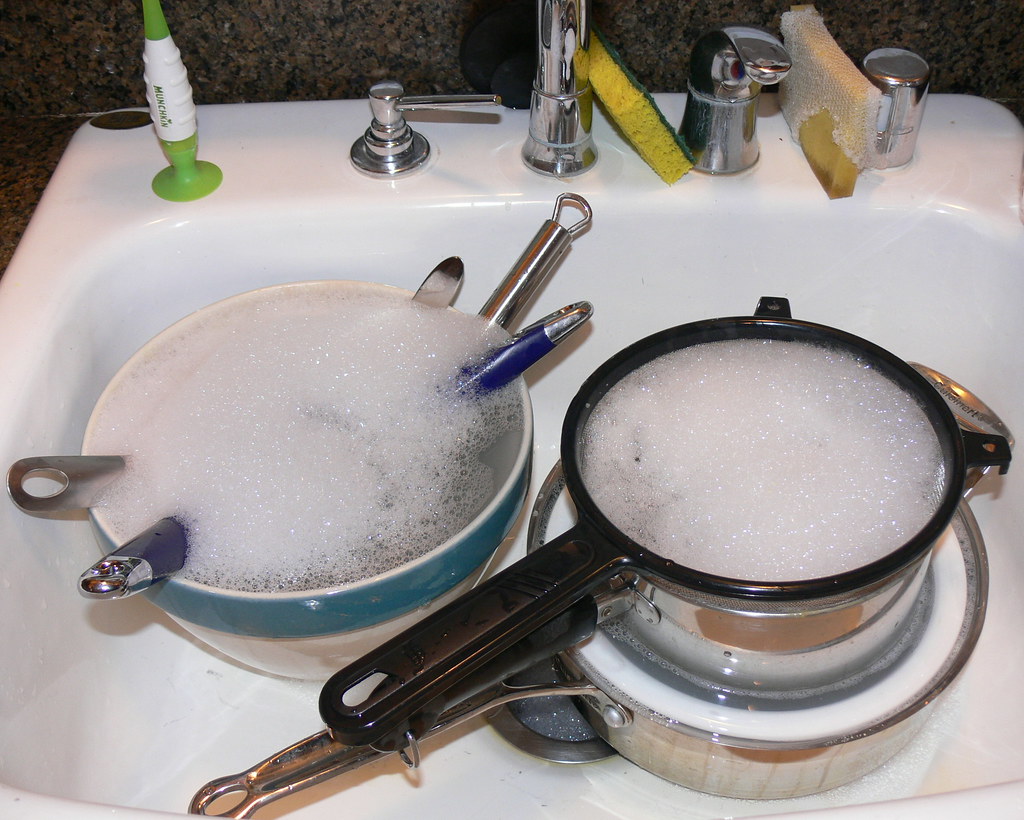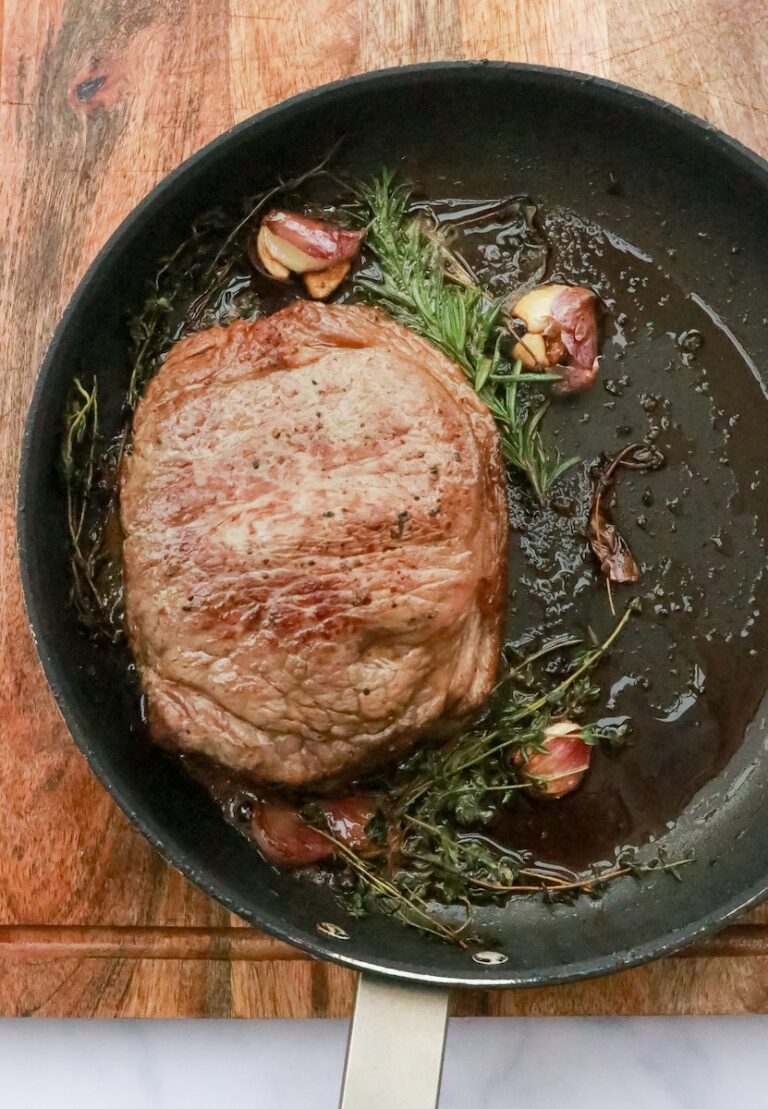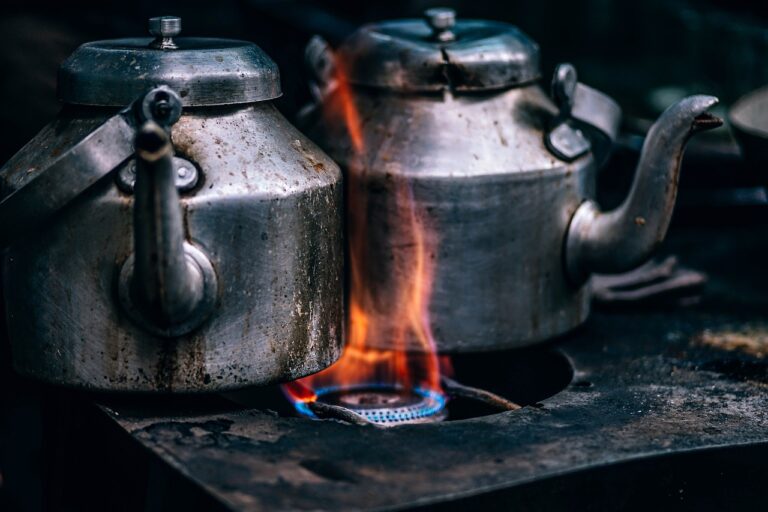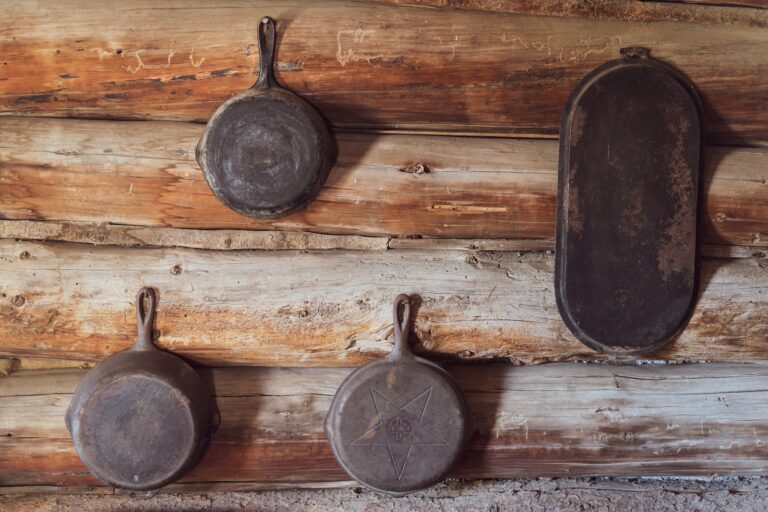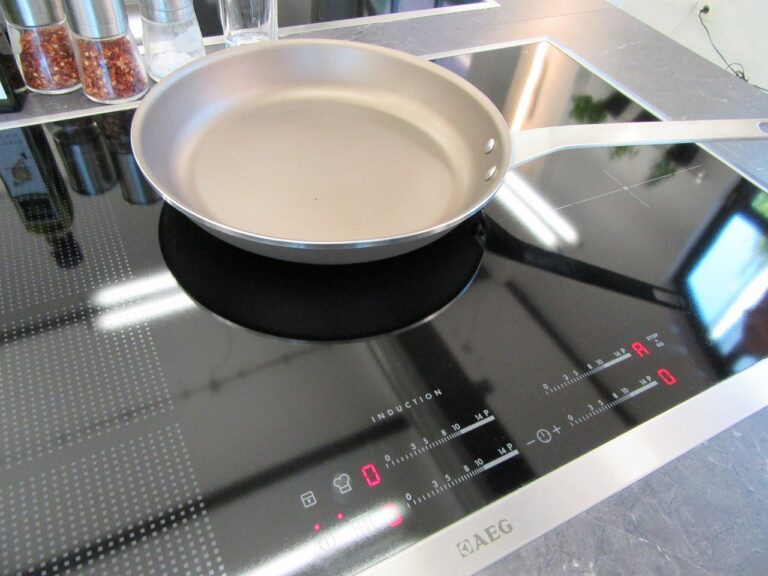Are you tired of your cooking pan smelling like soap? Discover the possible causes behind this unpleasant odor and learn how to identify and remove soap residue from your pans.
Find out how dishwashing detergents can impact pan odor and explore natural remedies to get rid of the soap smell.
Get tips on cleaning techniques and best practices to prevent soap smell in your pans.
Plus, learn how to properly season and maintain your cooking pans or consider alternative options to avoid soap smell altogether.
Key Takeaways
- Inadequate rinsing leaves behind soap residue
- Scrubbing with baking soda and water can break down residue
- Soaking the pan in vinegar and hot water can dissolve buildup
- Switching to a dish soap for cooking utensils can prevent residue buildup
Possible Causes of Soap Smell in Cooking Pans
You may be wondering why your cooking pan smells like soap. One possible cause is soap residue left behind from inadequate rinsing. When washing your pan, it’s important to thoroughly rinse off all soap to prevent buildup.
Soap residue can be challenging to remove, but there are some effective methods you can try. Firstly, you can try scrubbing the pan with a mixture of baking soda and water. This can help break down the soap residue.
Another method is to soak the pan in a solution of vinegar and hot water. The acidity of the vinegar can help dissolve the soap buildup.
To prevent soap buildup in the future, make sure to rinse your pan thoroughly after washing and consider switching to a dish soap that’s specifically designed for cooking utensils.
How to Identify and Remove Soap Residue From Pans
If your pans have a lingering soap smell or a filmy residue, there are a few ways you can identify and remove it.
First, look for a cloudy or greasy film on the surface of the pan.
Next, try wiping the pan with a mixture of vinegar and water or scrubbing it with baking soda to remove the soap residue.
Soap Residue Causes Odor
The soap residue on your cooking pan is causing the unpleasant odor. It’s a common mistake to overlook the residue left behind after washing your pans.
Here are a few possible solutions to get rid of the soap residue and eliminate the smell:
- Use vinegar: Mix equal parts of vinegar and water, then soak the pan for a few hours. Scrub it with a non-abrasive sponge to remove the residue.
- Baking soda paste: Create a paste using baking soda and water, then apply it to the affected areas. Let it sit for a while before scrubbing it off.
Cleaning Methods for Pans
To effectively clean your pans, try using a mixture of vinegar and water or a baking soda paste. These natural cleaning products are not only effective, but also safe for you and the environment. When it comes to removing burnt on residue, these methods can be quite effective. The acidity of vinegar helps to break down the burnt on food particles, while the abrasive nature of baking soda helps to scrub them away. Here is a table to demonstrate the effectiveness of these cleaning methods:
| Cleaning Method | Effectiveness | Safety | Environmental Impact |
|---|---|---|---|
| Vinegar and Water | High | Safe | Environmentally friendly |
| Baking Soda Paste | Medium-High | Safe | Environmentally friendly |
With these natural cleaning methods, you can easily restore your pans to their original condition, free from burnt on residue and any lingering soap smell.
Preventing Soap Buildup
To prevent soap buildup on your pans, rinse them thoroughly after each use and make sure to dry them completely before storing. Soap residue can leave an unpleasant taste in your food and affect the performance of your pans. Here are some tips to help you avoid this common mistake:
- Use vinegar and water: Mix equal parts of vinegar and water, then use this solution to rinse your pans. Vinegar helps to neutralize the soap and remove any lingering residue.
- Try lemon juice: Squeeze some fresh lemon juice onto your pans and rub it in. The acidity of the lemon juice can help break down the soap buildup.
- Use baking soda: Make a paste with baking soda and water, then apply it to your pans. Let it sit for a few minutes before rinsing. Baking soda is a natural abrasive that can help remove stubborn soap residue.
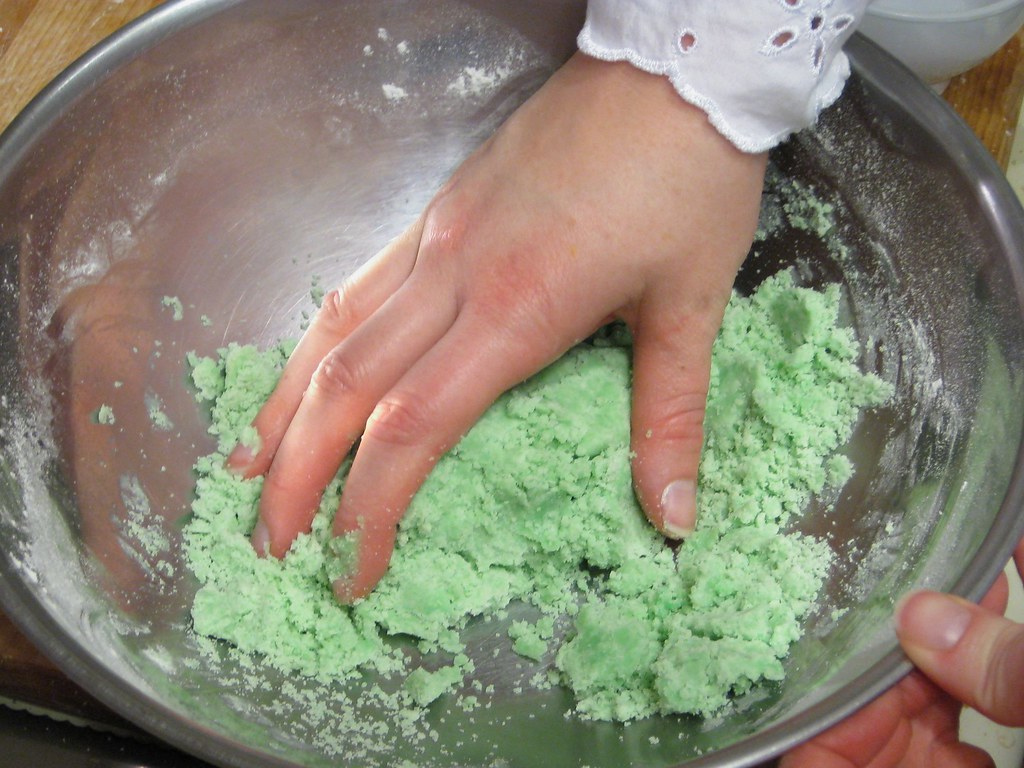
The Impact of Dishwashing Detergents on Pan Odor
You might notice that your cooking pan still smells like soap after washing it with certain dishwashing detergents. This often happens because different dishwashing techniques can have a significant impact on the odor of your pan.
One common misconception is that the soap smell is due to the detergent not being rinsed off properly. However, the truth is that certain detergents contain fragrances that can linger on the pan even after rinsing. It’s important to read the labels of your dishwashing detergents and opt for fragrance-free options if you don’t want your pan to retain any soapy smell.
Additionally, using hot water and scrubbing the pan thoroughly can help remove any residual soap and eliminate the odor. So next time you encounter this issue, don’t worry – it’s not your washing skills, but rather the detergent choice that might be causing the lingering smell.
Natural Remedies to Get Rid of Soap Smell in Pans
Now that you understand the impact of dishwashing detergents on pan odor, let’s explore some natural remedies to get rid of that lingering soap smell. These remedies not only eliminate the unpleasant odor but also help prevent soap buildup in the future.
Here are a few simple yet effective solutions:
- Vinegar:
- Fill the pan with equal parts vinegar and water.
- Boil the mixture for a few minutes, then discard it.
- Baking soda:
- Sprinkle baking soda generously over the pan.
- Add a small amount of water to form a paste, then scrub the pan with a sponge.
Cleaning Techniques for Eliminating Soap Odor
If you’re tired of the lingering scent of soap in your pans, try these effective cleaning techniques.
When it comes to eliminating soap odor, you’ve two options: natural and chemical cleaning methods. Natural methods involve using ingredients like vinegar, lemon juice, or baking soda to remove the smell. Simply mix one of these ingredients with hot water and let your pan soak for a few hours. Scrub it gently and rinse thoroughly.
On the other hand, chemical cleaning methods involve using commercial products specifically designed for removing odors. However, be cautious when using chemicals as they may leave a residue or damage the pan’s surface.
One common mistake when cleaning pans isn’t rinsing them properly after washing, which can leave behind soap residue and cause a lingering scent. So, make sure to rinse your pans thoroughly to ensure a clean and odor-free cooking experience.
Preventing Soap Smell in Pans: Best Practices
To prevent soap odor in your pans, it’s important to rinse them thoroughly after washing. The lingering smell of soap can ruin the taste of your food and make cooking a less enjoyable experience. Here are some best practices to help you prevent soap smell in your pans:
- Use hot water: Hot water helps to break down and rinse away any soap residue more effectively.
- Scrub with a non-abrasive sponge: Scrubbing the pans gently with a non-abrasive sponge can help remove any soap residue without scratching the surface.
- Dry the pans completely: Leaving your pans wet can lead to a musty smell, so make sure to dry them thoroughly before storing.
- Avoid using too much soap: Using excessive amounts of soap can make it harder to completely rinse it off, resulting in a lingering smell.
How to Properly Season and Maintain Cooking Pans
To keep your pans in top condition, it’s important to season them properly and maintain them regularly. Seasoning your pans not only enhances the flavor of your food, but also creates a non-stick surface that prevents sticking and makes cleaning a breeze. One common mistake is using too much oil during the seasoning process, which can lead to a sticky residue. Instead, use a thin layer of oil and evenly coat the entire surface. Another mistake is using high heat, which can cause the oil to burn and leave a sticky residue. Instead, heat your pan slowly and evenly to ensure proper seasoning. Regular maintenance includes cleaning your pan with mild soap and water, avoiding abrasive sponges, and drying it thoroughly to prevent rust. By following these simple seasoning techniques and avoiding common mistakes, you can ensure that your pans stay in top condition for years to come.
| Seasoning Techniques | Common Mistakes |
|---|---|
| Use a thin layer of oil | Using too much oil |
| Heat pan slowly and evenly | Using high heat |
| Clean with mild soap and water | Using abrasive sponges |
| Dry thoroughly to prevent rust | Neglecting to dry pan properly |
Alternative Cooking Pan Options to Avoid Soap Smell
When choosing alternative options for your pans, you may want to consider materials that won’t leave any lingering scents. Cooking pans made of certain materials can retain the smell of soap even after thorough washing. To avoid this issue, here are some alternative materials you can consider:
- This material is known for its durability and non-reactive properties, making it resistant to absorbing odors.
- It can be easily cleaned and doesn’t leave any lingering smells on your food.
- Cast iron pans are great for heat retention and even cooking.
- With proper seasoning and maintenance, they develop a natural non-stick surface, eliminating the need for soap and preventing any lingering smells.
Conclusion
In conclusion, if your cooking pan smells like soap, there are several possible causes, including soap residue and dishwashing detergents.
However, there are natural remedies and cleaning techniques that can help eliminate the soap smell. It’s also important to properly season and maintain your cooking pans to prevent this issue.
Alternatively, you can consider using alternative cooking pan options that don’t retain soap odor.
